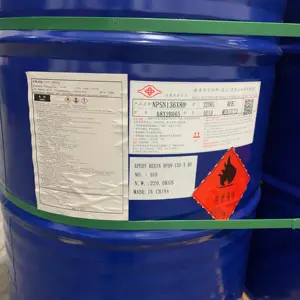Concrete epoxy has emerged as a cornerstone in the realm of industrial and commercial flooring solutions. Its resilience and adaptability make it an ideal choice for a multitude of environments ranging from warehouses and factories to retail stores and hospitals. This durable material provides a seamless and robust finish that can withstand heavy foot traffic, chemical spills, and the constant movement of machinery. Concrete epoxy coatings are not only practical but also aesthetically versatile, offering an array of colors and textures to enhance any space. This introduction will delve into the various aspects of concrete epoxy, including its different types, features, and applications that make it a sought-after flooring option in the business-to-business market.
Types of concrete epoxy
When considering concrete epoxy for flooring, understanding the different types available is crucial. Concrete epoxy coating is a common choice, providing a protective layer that extends the life of the floor by guarding against wear and tear. Concrete epoxy paint is another variant that combines epoxy resin with a hardener to create a tough, paint-like substance, ideal for a quick aesthetic upgrade and protection. For areas requiring a high degree of transparency or a glossy finish, clear concrete epoxy is frequently employed, often used in showrooms and galleries where visual appeal is paramount. In contrast, for repair and maintenance, concrete epoxy filler is utilized to address cracks and crevices, ensuring a smooth and even surface. Concrete epoxy sealer is applied to lock in the underlying layer, offering additional durability and resistance to moisture. Each type serves a specific purpose, catering to different industry needs and preferences.
Features of concrete epoxy
The features of concrete epoxy make it a standout choice for flooring. Its inherent strength is a key attribute, capable of supporting substantial weight and enduring high-impact activities. This makes it a practical solution for locations subjected to heavy machinery or large volumes of traffic. Moreover, concrete epoxy is resistant to a wide array of chemicals, meaning spills can be cleaned with ease without damaging the floor. Its seamless nature also prevents the accumulation of dust and debris, promoting a cleaner environment. Furthermore, concrete epoxy flooring is long-lasting, often outliving its counterparts due to its resistance to wear and ability to retain its appearance over time. For businesses, this translates to lower maintenance costs and less frequent need for replacements.
Applications of concrete epoxy
The versatility of concrete epoxy is showcased through its vast range of applications. Painting garage floors with concrete epoxy is a popular choice, as it provides a durable and easy-to-clean surface that stands up to the demands of automotive work. In the realm of food and beverage industries, where cleanliness and hygiene are paramount, concrete epoxy floors offer an impervious barrier to bacteria and are easy to sanitize. Outdoor concrete epoxy is tailored to withstand the harsh elements, making it suitable for exterior walkways and commercial patios that require a blend of functionality and curb appeal. In high-stress environments like manufacturing plants, concrete epoxy anchor systems provide heavy machinery with a stable and secure foundation. The adaptability of concrete epoxy makes it applicable for various sectors, each with their unique requirements, proving its value as a comprehensive flooring solution.










































 浙公网安备 33010002000092号
浙公网安备 33010002000092号 浙B2-20120091-4
浙B2-20120091-4